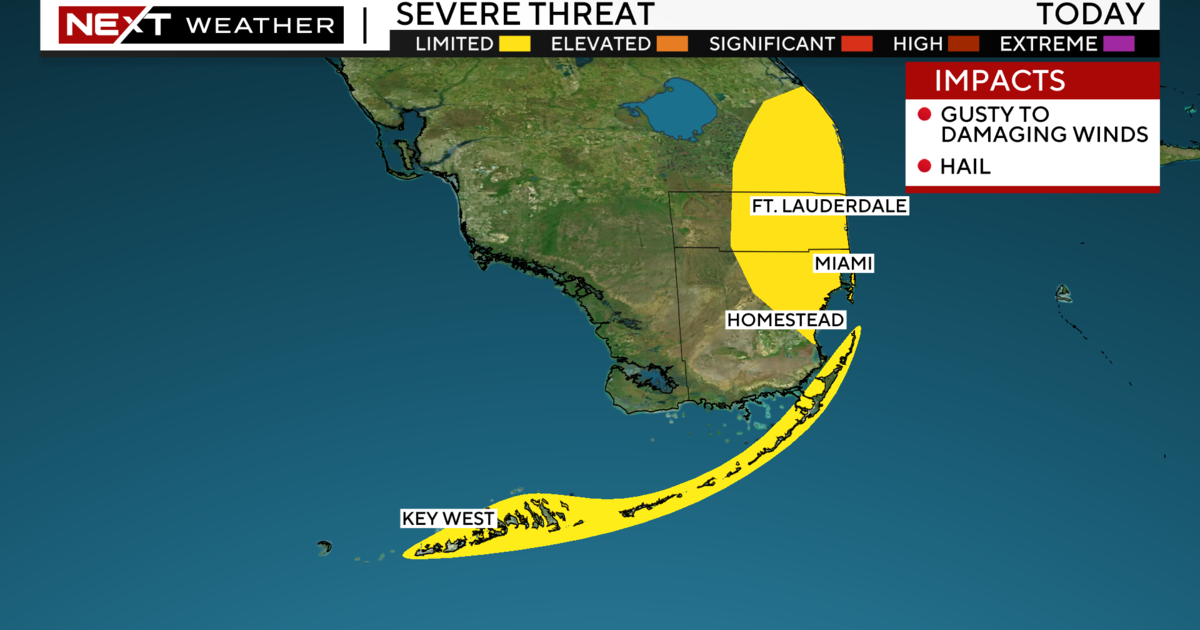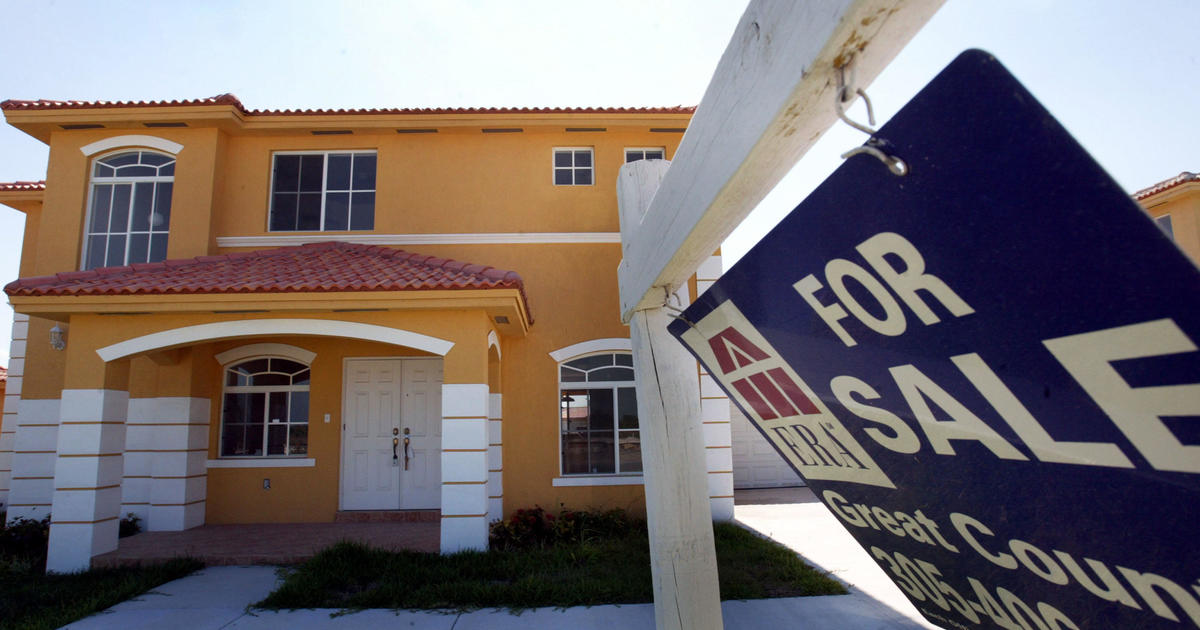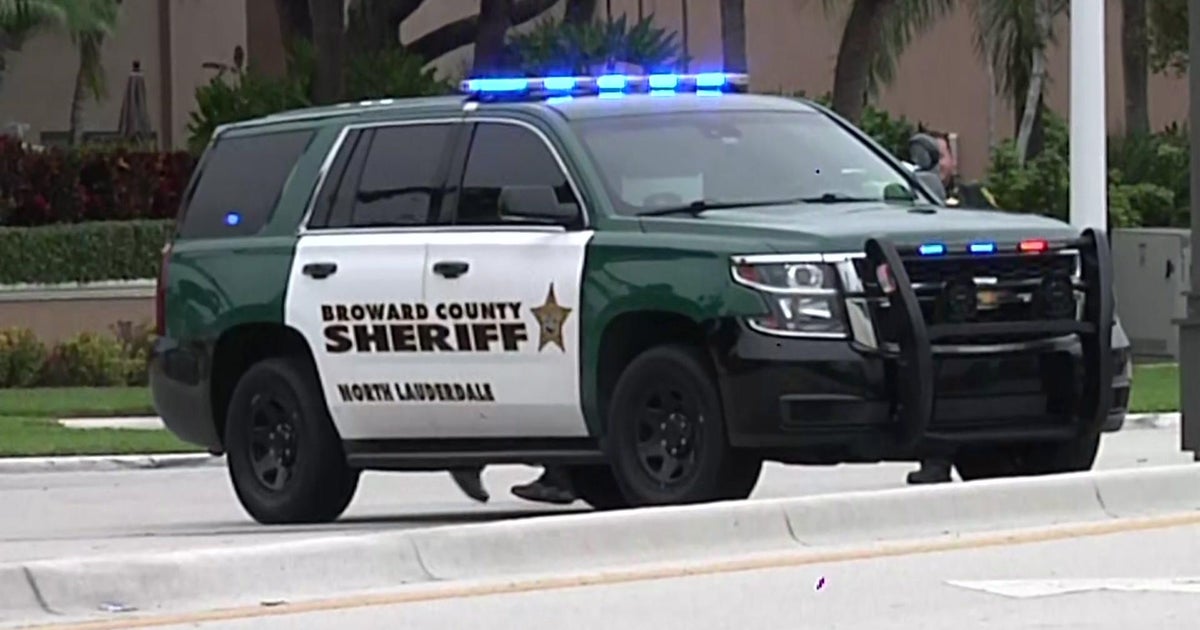Exclusive: Hacker Talks Stolen Credit Cards Black Market
Follow CBSMIAMI.COM: Facebook | Twitter
MIAMI (CBSMiami) – A hacker is speaking exclusively to CBS4 about credit cards. He's risking going to jail to expose a network of thieves.
They are criminals who are stealing thousands of cards a day and raking in more than a million dollar a month.
As he told CBS4's David Sutta, he hopes someone who sees this will do something about it.
Sutta took two strangers and sat them down together.
"You've never met Greg prior to this moment, right?" he asked.
"No," Adriana Jisa answered.
"Never seen him before?" Sutta questioned again.
"No," she replied.
Sutta then turned to the man sitting next to her.
"You've never seen Adriana before right?" he asked.
He immediately responds, "No."
Sutta then asked, "But you can tell her a lot about her credit card?"
He grins.
"Yes. I could tell her a lot about her," he said.
Jisa eyes get big as she said, "Scary!"
If he wanted to, the man Jisa's sitting next to, Greg Hanis could buy something with Adriana's bank card.
He pulls out a piece of paper and begins reading off her information.
"Expiration date. CVC, CCV, the little thing on the back of the card, name, address of course," he said.
Hanis never touched her purse or stole her number.
Click here to watch David Sutta's report.
Instead he found it in a quasi-chat room were hackers purchase numbers and test to see if cards are good or bad by charging a buck or two.
"They run a transaction through it and they see if it's been approved or denied," Hanis explains.
If it's approved, the criminal goes on to clean you out. If it's denied they move on to the next victim.
And it took Hanis seconds to find dozens of victims right here in South Florida.
Hialeah, Deerfield, Fort Lauderdale, Pompano – the list went on and on.
Because of the legalities of what Hanis was doing, CBS4 chose not to film the process. But CBS4 was able to verify the credit card numbers were real and so are the victims.
"I'm completely shocked that someone else other than myself was able to see this information," Jisa said.
Hanis is a hacker who admits he's worked for the good guys and bad guys. He wanted you to hear about this because he's having a hard time getting anyone to do something about it.
Local police turned him to the FBI. The FBI never got back to him.
"I gave up. I called the credit card companies. They don't care," he said.
Because he wasn't the account holder, they would not do anything.
Hanis opened up his laptop and showed Sutta it's easy to find these criminals.
"Here is the criminal. Here is their website. Here is their IP Address. Here is he's talking to me and everything. And there is nothing nobody can do," Hanis said.
So he chose to take matters into his own hands, alerting the card holders before their bank alerts them.
"I am a little scared when I am calling these people, because it's a weird conversation. It's like, 'Hello, my name is Greg and your credit card ending in 95-whatever has been stolen.' And they are like, 'No it's right here.' And I say, 'No, I have your credit card information,'" Hanis explained.
CBS4 filmed him as he went door to door one afternoon delivering the bad news.
"There is a card stolen every minute," he told one victim.
"I believe it," she replied.
Most victims declined to go on camera.
Sutta wondered though. He's one guy and millions of numbers are being traded here. Why contact victims?
"Well it's more for the invaluable insight on the whole sequence of events on how it all gets done," Hanis explained.
In other words, he was curious.
Out of curiosity, Hanis said he logged all the small charges on this quasi-chat room for an entire month.
It added up to $1.3 million dollars.
It's got to be tempting?
Hanis laughed, saying, "It is tempting. It's so tempting. But I don't. But a man has got to live by a code and that's one of my codes. Can't steal or anything like that."
Especially since law enforcement hasn't responded to his alarms.
Hanis used an analogy, "It's like the bank was open. Nobody was there and it was the middle of the forest. Would you take the money?"
CBS4 contacted the Secret Service for comment on Hanis activities. They did not reply to CBS4's request for comment.
Even though he saod he's not using the credit card information, just having them may be a crime.
"I don't know if I'm authorized or even allowed," he said.
Hanis isn't worried though. He hopes someone knocks on his door.
"At least then I'll know who to report the rest of the cards to," he says with a laugh.
Jisa suspects no one cares.
"Because it's too small, the fish is too small, I think. Here you have people that are charging $2, $3. At least that's what it was in my situation, $2 here, $3 there," she said.
But when millions of cards are added into the equation, it adds up fast.
Jisa represents all of us that are in this.
"Is there any hope for folks like us," Sutta asked Hanis.
He thought for a moment.
"There is. I'm just trying to get the word out. The more victims that are out there that I contact or the more that actually speak up and contact the police department and ask them to investigate. Call your bank and say you said you were going to investigate it," he said.
In other words, hold them accountable.
Hanis is contacting victims on his free time, but has become overwhelmed with the never ending task.
He's considered stopping his mission to alert victims. It's just too many people.
Hanis is trying to focus more on the criminals.
He said he's discovered where many of them are. It's a bit surprising.
He found a majority of these thieves are either overseas or interestingly in rural states. Wisconsin, Idaho, Iowa – not metropolitan areas.



